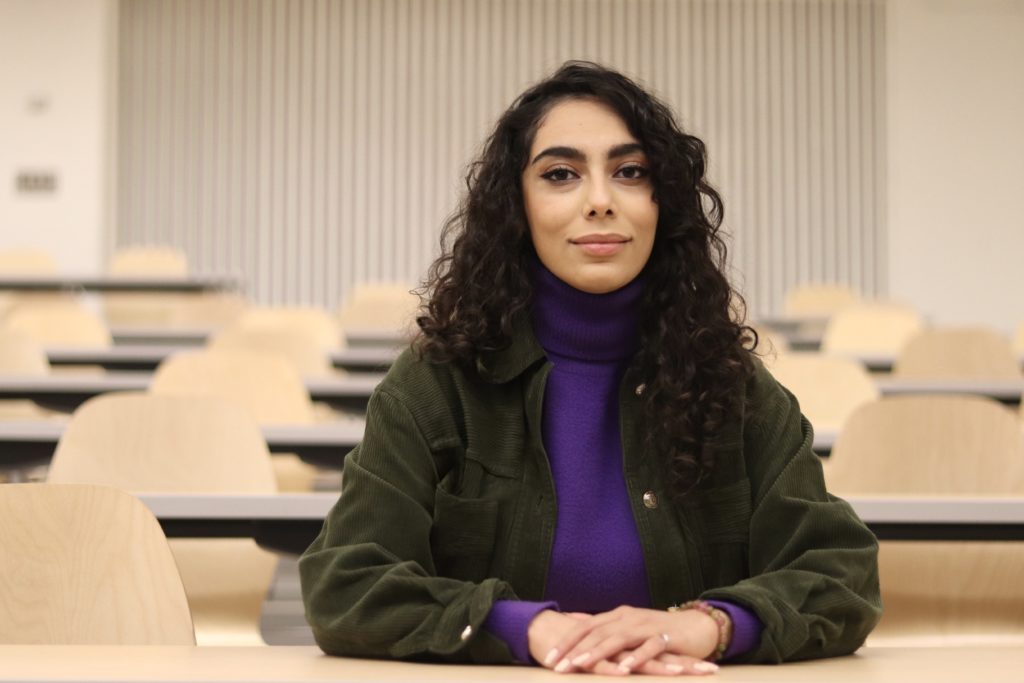
Newsha Haghgoo (CivE 2T0, MEng Candidate) recently attended the International Astronautical Congress (IAC), the world’s largest gathering for the space community, where she met her favourite astronaut, Christina Koch.
Newsha joined MIE in January 2021 to begin the MEng program where she is taking courses like systems engineering to further explore her areas of interest; making spaceflight safe for women and the use of Cube Satellites to study the relationship between climate change and the earth’s oceanic activities.
“I’ve always been interested in space, and I started exploring ways to get involved in that community outside of my studies. By talking to others who shared the same interests I was introduced to the Space Generation Advisory Council (SGAC),” said Newsha.
The SGAC is a non-profit organization that works to pair students with an interest in space with research opportunities. Newsha began attending SGAC networking events where she was able to meet others to form project teams. One of her current projects with SGAC is titled Safe Spaceflight for Women-Examining the Data Gap and Improving Design Considerations.
“We are at the beginning of making spaceflight more inclusive, but with only 11% of astronauts being women there is a huge data gap on the impact of spaceflight on women,” said Newsha. “I recently presented my project team’s research on safety for women in space at the International Association for the Advancement of Space Safety (IAASS) conference and won the Special Recognition Award. The selection committee felt that this was a particularly important and timely research topic.”
Newsha’s next conference presentation will be in Paris at the 12th European CubeSat Symposium which is being held at École Polytechnique University. Newsha and her team have been working on designing a multispectral and multi-temporal Cube Satellites system that will analyze the relationship between climate change and oceanic activities. The satellites feature sensors that can take measurements like surface water temperature, salinity and sea level to gather data that may help with disaster forecasting.
“Space tech is not only used for outer space exploration purposes; it has an important role in understanding our planet Earth as well,” said Newsha. “These Cube Satellites could help us better understand what is going on in our oceans and how that activity impacts climate change. Hopefully, this information will help us predict disasters like flooding and prevent a lot of destruction and loss of life.”
The opportunity to travel and present the projects she has been working on this fall has been very memorable for Newsha. Having the chance to connect with others in the space community and meet her favourite astronauts is a direct result of the effort she put into expanding her community at U of T and beyond.
“I really encourage students to go to as many events that are related to your interests as possible. Put yourself out there and network, that’s how you’ll build a supportive community. You never know what type of opportunities will come from exploring your interests.”
-Published November 8, 2021 by Lynsey Mellon, lynsey@mie.utoronto.ca